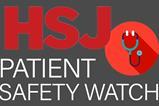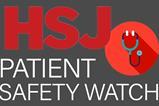HSJ hosts the Patient Safety Watch newsletter, written by Patient Safety Watch chief executive James Titcombe.
Good afternoon and welcome to the latest edition of the Patient Safety Watch newsletter.
Poor maternity care being ‘normalised’, warns watchdog
A Care Quality Commission report has warned “poor care within maternity is being normalised” and the failures identified in high-profile scandals are “widespread” rather than “isolated”.
Problems identified by the review – which examined 131 maternity unit inspections carried out between August 2022 and December 2023 – included incidents of serious harm going unreported and the “potential normalising of harm”.
In particular, the CQC found examples of “major obstetric emergencies” – including uterine inversion and major haemorrhages – “regularly being graded as no harm or low harm”.
Nearly half the units the CQC inspected for the review were found to be “inadequate” or “requires improvement” overall, while 18 per cent were rated as “inadequate” and 48 per cent as “requires improvement” for safety.
The CQC’s report was published a day after Donna Ockenden, chair of the inquiry into maternity failings in Nottingham, accused the previous government of being “asleep at the wheel” in relation to maternity safety, stating not enough effort had been put into improving care in the sector.
NHS maternity services still ‘promoting normality’
Sticking with maternity safety, a powerful piece published in the i this week has highlighted how some NHS maternity services are still promoting ”normality” in childbirth. This included revealing eight job adverts placed by hospitals in 2024 – one as recently as this month – for midwives who will “promote normality” (vaginal birth without medical interventions).
It’s a well-written and informative piece setting out the context, background and significance of these issues clearly.
My view? The latest CQC report risks being seen as yet another report highlighting what we already know about safety in maternity care. However, what the CQC report does unequivocally (and more clearly than ever before) is spell out why we must move away from viewing problems with maternity safety as affecting only a small number of outlier units to an acceptance that the themes identified in major reports are prevalent across the whole system. There can now be no doubt that current efforts to address these issues have been insufficient.
Responding to the CQC report, health secretary Wes Streeting said maternity safety is “one of the biggest issues that keeps [him] awake at night” – a hopeful signal of how seriously the government is taking these issues and that meaningful action will follow.
In other news this edition…
Inquiry chair thanks families for ‘deeply moving and affecting’ accounts
Baroness Kate Lampard, who is chairing an inquiry into the deaths of people who received mental health inpatient care in Essex between 2000 and 2023, has thanked the families who have provided evidence for their “deeply moving and affecting” accounts.
The Lampard Inquiry – which has been widely reported on, including on the BBC News website – has been hearing commemorative and impact accounts over the last fortnight. The scope of the inquiry now covers more than 2,000 deaths.
Baroness Lampard opened the first day of the accounts by expressing “how grateful I am to everyone who has shared an account of a person who has died and the impact of that person’s death. I’ve found these accounts deeply moving and affecting, and providing them, I know, must have been extremely difficult, but they do provide me and the rest of the inquiry team with a very necessary perspective on the seriousness and the tragedy of the matters we’re dealing with.”
National warning issued over drug commonly used in labour
A national patient safety alert has been issued instructing healthcare settings to change how they prepare oxytocin – a hormone used to induce labour or manage postpartum haemorrhage – after reports linked pre-prepared dosages to an increased risk of it being wrongly administered.
Hospitals have been told to stop pre-preparing oxytocin infusions at ward level by the end of March 2025. Where women are believed to be at high risk of postpartum haemorrhage, hospitals are now instructed to have a PPH kit or trolley immediately available and to prepare an oxytocin dosage at the time of birth and no earlier.
The alert stated that searches of national reporting systems had revealed 25 incidents across five years where oxytocin was administered wrongly during labour and delivery, leading to an oxytocin overdose, and the presence of readily available pre-prepared postpartum oxytocin infusions was identified as a theme increasing the risk of a mistake.
Trusts told to report on harms caused by corridor care
NHS England has told trusts to report harm caused by care delivered in corridors and other “unplanned settings”, adding trusts “need to monitor the risks of potential harm, the actual harm that has occurred and the impact on patients and staff of the use of [temporary escalation spaces]”.
The guidance stressed the practice of treating patients in corridors is still “not acceptable and should not be considered as standard”, but added NHSE acknowledged “this use is no longer in extremis”.
Ombudsman issues warning after patient’s fractured skull missed
The Parliamentary and Health Service Ombudsman has called on hospitals to learn lessons from a case it recently investigated where doctors failed to spot a serious head injury.
The then-18-year-old patient spent three hours in hospital being treated for injuries immediately after being hit by a cyclist. However, it was not until her condition worsened the following day that a minor injury unit referred her to accident and emergency, where it was discovered she had a fractured skull.
The mother of the woman – who wishes to stay anonymous – said: “They missed major red flags and I literally can’t comprehend it. I worked for the NHS for nine years, I’m a great advocate of the NHS, and yet I feel my daughter was so let down. It is scary that she was discharged not knowing what to do and knowing something didn’t feel right.”
Ombudsman Rebecca Hilsenrath added: “It is particularly important that head injuries are properly assessed and treated appropriately in good time. This patient manifested a range of symptoms of injury, was not taken seriously and was let down badly.”
‘Broken NHS’ message causing unease
In light of the health secretary’s previous statements that the NHS is “broken,” the BBC has reported that senior healthcare service sources believe some of the claims have gone too far, potentially leading to patients putting off seeking care and damaging staff morale.
However, at this week’s Labour party conference, Mr Streeting said: “When you put protecting the reputation of the NHS above protecting patients, you’re not helping the NHS, you’re killing it with kindness.”
Recommendations but no actions
A Health Service Safety Investigation Branch report – Recommendations but no Actions: Improving the Effectiveness of Quality and Safety Recommendations in Healthcare – has highlighted how a large volume of healthcare safety recommendations can overwhelm providers.
This in turn leads to challenges in prioritisation, duplication and implementation, while a lack of clear evidence, cost analysis and formal monitoring also prevents organisations from taking action.
The report recommended further guidance for creating and implementing recommendations, as well as a searchable repository of patient safety recommendations and improved cross-system collaboration.
My view? These recommendations could be game-changing. How often do patient safety teams develop recommendations from scratch when an effective solution may already have been developed and implemented somewhere else? How often do patients come to avoidable harm when a system used in another organisation could have helped prevent it?
These recommendations have huge potential to make a difference. For those interested, Charles Vincent and Rene Amalberti’s 2016 book Safer Healthcare, Strategies for the Real World is a brilliant (and free to download) resource. Chapter 11 speaks to HSSIB’s recent work and is well worth a read.
Primary care patient safety strategy published
NHSE has published an updated patient safety strategy for primary care. This focuses on developing a supportive, learning environment and just culture, systematically managing safety based on safety science and systems thinking, and involving patients in identifying and co-designing primary care safety ambitions.
Sharing some good stuff…
Mary Dixon-Woods’ report to the Thirlwall Inquiry
THIS Institute director Mary Dixon-Woods has compiled a remarkable report for the Thirlwall inquiry, addressing part C of its terms of reference. It brings together a considerable wealth of evidence, research and history on what is known about patient safety culture and systems. It’s a brilliant document and will be an invaluable resource for pretty much anyone working in healthcare.
HSJ Patient Safety Congress
It was great to see lots of you at last week’s HSJ Patient Safety Congress. I’ll be reflecting more on the event in the next edition. For now, if you are on X, check out the hashtag #HSJPatientSafety for some of the key messages and thoughts from those who attended.
National Maternity Safety Conference 2024
I was also lucky enough to attend the annual Baby Lifeline National Maternity Safety Conference in Birmingham this week. If you missed it, the hashtag #MatSafety2024 on X gives a flavour of what was a truly memorable day. A highlight for me was seeing the quality and breadth of this year’s poster submissions – a fantastic way of sharing innovative work being done to improve maternity safety across the country. Selected poster submissions are available here. A special mention of amazing midwife Catherine Hopley, whose work to improve fetal surveillance to reduce avoidable harm to babies, is phenomenal.
That’s all for this edition. Please look out for our next newsletter in two weeks. Until then, thanks for reading and stay safe.
































No comments yet